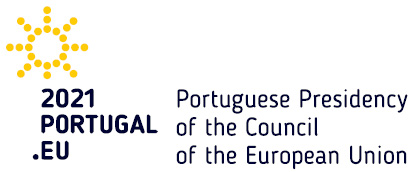Accidents happen. And we would all like to think that if we were involved in one, an ambulance would be there to take us to hospital for treatment in a matter of minutes. We would also like to think that all the best equipment would be on board the vehicle in case paramedics needed to treat us while on our way there.
Author EUinfo Admin
Since the 1800s Palić Lake, on the outskirts of the city of Subotica, in the north of Serbia close to the Hungarian border, has been a popular spa resort. But the renowned health-giving properties of the lake’s water began to evaporate in the 1960s due to extensive pollution and the uncontrolled growth of algae. Dried and dredged to remove sludge in 1971, the lake was refilled with fresh water in 1976 and a wastewater treatment plant opened. But with time, the plant’s equipment and sludge treatment processes became outdated and the quality of both the lake’s water and the local water supply deteriorated as a result. It was time for the plant to have an overhaul.
“We used to live in a cardboard village without any hygiene conditions, we slept together with rats. No human being would have endured all the things we have during the past 11 years. But thanks to this project we finally have a roof above our head” – Mr Nikolić, Požarevac, central Serbia.
In June 2012, a laboratory kitted out with the latest equipment required to develop 3D digital models and rapid prototyping of new manufacturing products opened at the Faculty of Mechanical Engineering of Kraljevo, south-west Serbia. ‘3D World’, the name which the laboratory goes by, was set up as part of the IMPuls project, designed to raise the competitiveness of manufacturing in the country’s southern central districts of Raška, Moravica and Rasina. Funded by a grant from the EU’s Regional Socio-Economic Development Programme 2, IMPuls focused its activities on transferring technological know-how in innovation at higher educational establishments in the region to 500 local manufacturing companies.
The concept of consumer protection as a right for every citizen is still not yet fully embedded in Serbian society. Several steps have been taken to change the situation in the last decade, most notably in 2005, when Serbia adopted its first consumer protection law. However, a meaningful legal infrastructure for consumer protection was only effectively put in place in the country in 2010, when a new Law on Consumer Protection was adopted.
Primary education in Serbia is both compulsory and free. Drop-out rates for young children, though, remain relatively high. In 2008, it was estimated by the Serbian government that 5% of pupils dropped out of elementary school, which represents about 80,000 children. Drop-out rates were higher among children from vulnerable groups, such as Roma and children with disabilities, and almost 19% of children living in rural areas were not enrolled in elementary school at all.
Raška is a small town in South West Serbia. The area, along with South Serbia, is one of the country’s poorest regions. Finding employment is difficult – and for anyone with a disability, it can seem an almost impossible challenge. A poor public perception of disability means that local employers generally overlook the needs and skills of people with disability, favouring those who are fully-abled.
Drug abuse is a problem among young people across Europe. This situation is exacerbated in Serbia by the country’s situation on the Balkan ‘drugs road’ between the Middle East and Western Europe, giving its population far greater access to drugs. Reports from the World Health Organization indicate that countries undergoing profound socio-economic changes, such as Serbia, experience greater demand for drugs by all those who feel excluded from the process or unable to cope with the changes. In Serbia, there has been a noted increase in the number of types of drugs available on the market and the age limit for drug use is extending in both directions, but especially toward younger age groups.
Jovica Stojković is a farmer from Navalin near Leskovac, South Serbia. According to Stojković, the climate in his region is better than in the Netherlands: “We have more sunny days, better-tasting fruit, cheaper labour, but so far we haven’t had a vision and the people on site who can network on behalf of producers.” However, life for this farmer and many others on the 40,000 farms producing red peppers, potatoes, cabbage, tomatoes, berries and pears in the area is all set to change.

Serbia’s capital Belgrade has slightly changed its tune when it comes to celebrating the New Year. Instead of ringing in just one new year, it has now taken to honouring several. Between September 2011 and January 2012, the Jewish, Islamic, Catholic, Orthodox and Chinese New Year were all marked by the Belgrade Philharmonic with a special concert highlighting the rich contribution made to society by each of these great cultures. The New Years’ Concerts programme is now a permanent feature of the Belgrade Philharmonic’s repertoire.



